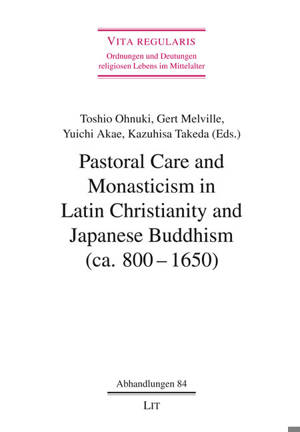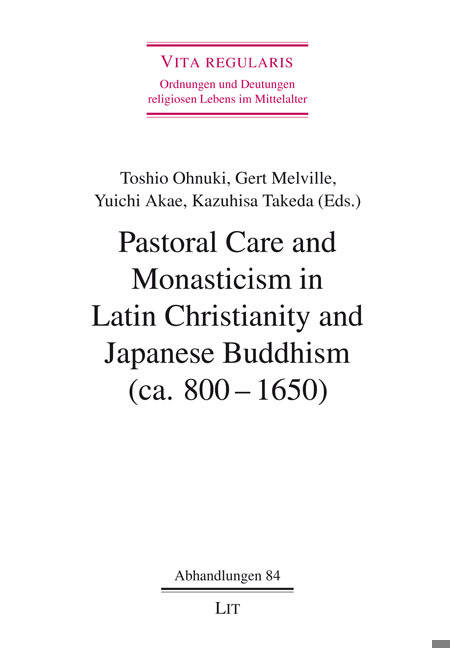
Bedankt voor het vertrouwen het afgelopen jaar! Om jou te bedanken bieden we GRATIS verzending (in België) aan op alles gedurende de hele maand januari.
- Afhalen na 1 uur in een winkel met voorraad
- In januari gratis thuislevering in België
- Ruim aanbod met 7 miljoen producten
Bedankt voor het vertrouwen het afgelopen jaar! Om jou te bedanken bieden we GRATIS verzending (in België) aan op alles gedurende de hele maand januari.
- Afhalen na 1 uur in een winkel met voorraad
- In januari gratis thuislevering in België
- Ruim aanbod met 7 miljoen producten
Zoeken
Pastoral Care and Monasticism in Latin Christianity and Japanese Buddhism (ca. 800-1650)
Paperback | Engels | Vita regularis - Ordnungen und Deutungen religiosen Lebens im Mittelalter. Abhandlungen | nr. 84
€ 44,45
+ 88 punten
Omschrijving
Monasticism has a special position in the history of pastoral care. It produced innovations in various aspects of pastoral care despite, or more precisely, because of its isolation in legal or social terms from the secular world. The thirteen papers contained in this volume will reveal that there was a great variety in the ways pastoral care continued to be practised by monasticism, depending on time, space, and the nature of each religious order. Adopting a comparative approach, their historical and geographical range of investigation is not limited to medieval Europe but expands to the Americas and even to Japan in the early Modern Age.This volume bases on a conference held on 1 and 2 March 2019 at Okayama University, Japan, as part of the close collaboration between a Japanese research group on Christian/Buddhist religious movements and the Research Project "Monasteries in the High Middle Ages: Innovation Laboratories for European Life Designs and Regulatory Models" of the Saxon and the Heidelberg Academies of Sciences and Humanities, as well as the Research Center for Comparative History of Religious Orders (FOVOG, Dresden).
Specificaties
Betrokkenen
- Uitgeverij:
Inhoud
- Aantal bladzijden:
- 280
- Taal:
- Engels
- Reeks:
- Reeksnummer:
- nr. 84
Eigenschappen
- Productcode (EAN):
- 9783643154972
- Verschijningsdatum:
- 2/04/2025
- Uitvoering:
- Paperback
- Afmetingen:
- 165 mm x 20 mm
- Gewicht:
- 519 g

Alleen bij Standaard Boekhandel
+ 88 punten op je klantenkaart van Standaard Boekhandel
Beoordelingen
We publiceren alleen reviews die voldoen aan de voorwaarden voor reviews. Bekijk onze voorwaarden voor reviews.








